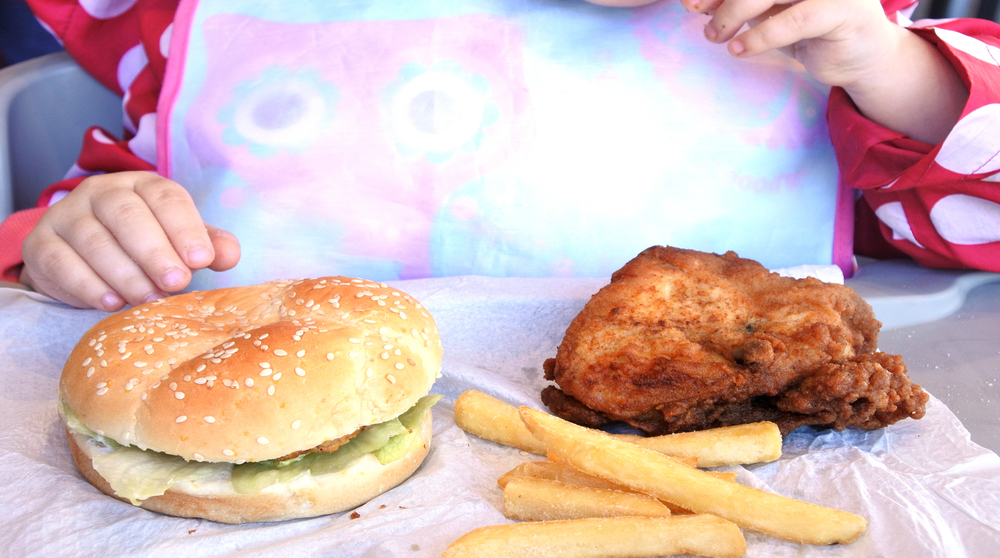New tool to tackle childhood obesity
Published on Tuesday, 20 February 2018
Last updated on Wednesday, 15 January 2020

A new nutrition tool for early childhood education and care providers to curb the obesity epidemic among young children has been developed by researchers at the University of Newcastle and backed by the Australian government.
It is hoped the free menu planning tool, which will be freely available to early childhood services from March, will improve current statistics that show one in four children and almost two in three adults within Australia are considered overweight or obese.
The feedAustralia program, which is currently being trialled in a select group of early childhood education and care settings, translates best practice into an every day, ready-to-use menu planning tool, to support Australia's 25,000 plus providers to meet National Quality Standard compliance among other benefits.
Meals given to children in long day care account for up to 67 per cent of their daily nutritional requirements and according to Professor John Wiggers, from the School of Medicine and Public Health, University of Newcastle, this tool will give directors, cooks and food handlers a seamless and fail safe menu planning tool to help them determine whether a meal meets Australian Dietary Guidelines.
"We have heard from many providers that while they do their best to provide nutritious meals for their children, it is difficult to know whether each dish across their menu is meeting the guidelines," Professor Wiggers said.
"The feedAustralia program bridges the gap between the world’s best nutritional expertise and the day-to-day practices of early childhood education and care providers. Essentially, it equips providers with an in-house dietician," he said.
Laureate Professor Nick Talley, Chair of the Council of Presidents of Medical Colleges and past President of the Royal Australasian College of Physicians said the opportunity to, not only provide excellent nutritious meals to children, but also to instil lifelong healthy eating habits is a ground-breaking interruption to the chronic obesity challenge.
"As obesity tracks from childhood into adulthood, early childhood education and care settings provide a valuable opportunity to improve child care nutrition and prevent obesity in children and adults later in life," he said.
"Nurturing better eating habits for life from a young age is a much more effective and more durable approach to tackling obesity compared to seeking to fix eating habits at a later stage," he said.
The feedAustralia early childhood nutrition program has been developed through a four-year partnership with the University of Newcastle, Hunter New England Population Health and Healthy Australia to provide early childhood education and care providers with a free program that translates expert nutritional knowledge into everyday 'best food selection'.
The program is currently being trialled in 54 centres in a study led by the University of Newcastle and Hunter New England Population Health, which has been running for the past 12 months, and will shine a light on the potential for feedAustralia to be a frontline strategy in addressing childhood obesity.
The feedAustralia program has a database of over 200 recipes and 2000 ingredients with established nutrient profiles and serve recommendations. The provider’s daily menu is automatically displayed to parents of children attending care via the parent portal of the program.
Cheryl Carberry, the cook from Little Beginnings at Warners Bay has been using the feedAustralia program since December 2016 and says the tool provides reassurance that the meals given to children meet Australian standards.
"The recipes are easy to prepare, make use of readily available seasonal produce, offer substitutions where required and can accommodate for food allergies and other individual dietary needs."
"The program also enables us to reduce food wastage as we now have a better understanding of quantities and portion sizes and can more precisely order the amounts required. And of course our children, and parents, love it."
The feedAustralia program is due to launch in March and will be freely available to early childhood services.
Related Articles

Nutrition and children in child care
Nutrition is an important factor when choosing an early childhood service, this article offers suggestions on what to look out for.

Is dried fruit a healthy snack?
Rethinking dried fruit as a snack option for young children.

Is there too much sugar in baby food?
WHO Europe calls for a ban on added sugars in foods for children under the age of 36 months.

